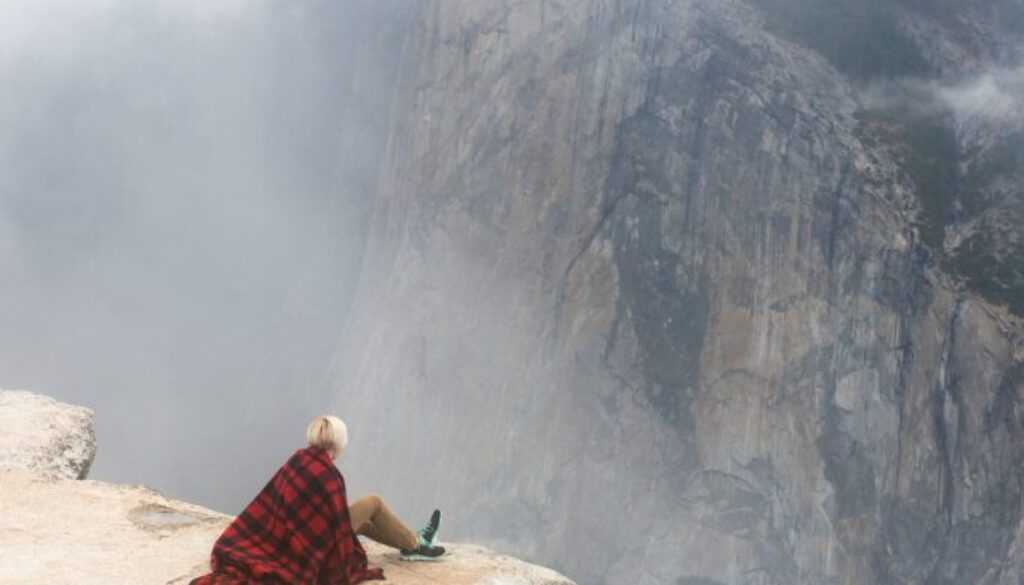In the Breach and to the Brink
Two weeks ago, when we studied the story of Noach, we got a glimpse of the existential brokenness of his world. We are told that the generation of the flood is corrupt and violent and needs to be destroyed, but we never get told specifically why. Noach’s story is one of sweeping generalities; it is the God’s eye view of deep loss and profound change on which we project our own imaginings. In rabbinic terminology, the story of Noach is the ‘k’lal’, the ‘general principle.’ It’s Google Maps completely zoomed out onto the planetary level; overwhelming and absolute.
In many ways, the story of Abraham in Parashat Vayera, is the detail – what the Rabbis called the ‘p’rat’ – of the Noach story. Sodom and Gomorrah are a mini-version of the global cataclysm God inflicted on the planet. Instead of water, it was fire and brimstone that rained down, but we get an understanding of why God destroyed the cities in far greater detail. We can extrapolate those reasons and retroactively projecting them back on the ‘hador mabul’, on the generation of the Flood. Where the trauma of Noach remained shrouded in mystery, the trauma of Abraham is felt keenly. Parashat Vayera is relentless in its documentation of that brokenness: the destruction of Sodom and Gomorrah, the rape of Lot’s daughters, the death of Lot’s wife and Lot’s own moral cowardice. We read of the desolation of Lot’s daughters, how they believed – like the progeny of Noach – to be the last humans on earth and the sin that sprang from their despair. We witness Sarah’s cynicism in response to her barrenness, the cruelties inflicted upon Hagar and Ishma’el and the near-sacrifice of Isaac. We encounter the innocence of Abimelech in the face of Abraham’s duplicitousness as he lies – again – about Sarah being his sister instead of his wife. If we would center ourselves in the narrative and turn 360 degrees, we would encounter people pushed to the brink at every turn. Our tradition trains us to see Abraham as a moral exemplar, and I am indeed guilty of pushing that interpretation myself, but we cannot understand how his morality meets the moment without understanding how his pain shapes him.
Like Abraham, we are called to be moral exemplars. And like Abraham, we see an incredible amount of pain and brokenness. I know that many of us are waiting to exhale in the wake of the election. Perhaps by the time this sermon has been delivered, we will have definite news. With the truth ringing out of that news, will be new tears in the fabric of our country. Our America is more polarized and more anxious, more complicated and more fraught. Upon us too, great moral judgment is cast, both by history and perhaps by God. As we process whatever the next steps will be, we should not look away from what we have been through these last years. I am sure many of us feel a strange mix of emotions; perhaps all at once. Relief, exhaustion, joy, sadness, concern, wistfulness, self-righteousness, anger, despair and hope. Like Lot, we have seen cruelties in our polity that we could not imagine and that have tarnished our sense of self and our national identity. Like Abraham, we have given in to baser impulses, where we may have sacrificed the most precious and intimate of relationships to delusions of power.
Among the rubble of Vayera, we mourn the brokenness. Lot’s wife, who couldn’t let go of the past, now a pillar of salt, a monument to not just the cruelty of Sodom but also its evil magnetism—a magnetism that still exists to this day even though the cities are long gone. Hagar, exploited, abused and unseen, whose dehumanization leads to the near-death of her son, separated and only reunited by Divine intervention. Isaac, who stared his father’s madness in the face, lit up by the glint of his sacrificial blade. Lot, who like Noach, was a man diminished by his drunken shame. And then, of course, the countless lives lost among the destruction, for our tradition always invokes mercy, even upon the wicked. Vayera encourages us to face it all; the carnage that came out of human folly, and to slowly, slowly heal.
We must always remember that death and destruction are not the defining feature of this narrative; nor are they the defining feature of Abraham’s moral leadership. As we take stock of what has been, we must cast our vision for what is yet to come. Just like for Abraham, there was no instant clarity, no quick fix. Brokenness needs healing, mourning demands time. We need to give ourselves and our siblings time, grace and love. Abraham was irrevocably changed through what he encountered; as are we. Whatever world we find at the other side of this divide, it will be a new one, and we must commit to traversing it with kindness.
Abraham and Sarah’s journey started by being told that they would go to a land that God would show them. Their journey is far from over, as is ours. America’s unique quality has always been about embracing the uncertainty bravely and casting her imagination forward, propelled through history, sometimes heeding and sometimes failing to heed its moral call. We are still part of that great story and recruited to that mission. As we move past the rubble of Sodom and Gomorrah, past the great injustices and small cruelties of our polarized human experience, may we build a kinder country and a more welcoming world in the journey to our Promised Land.


